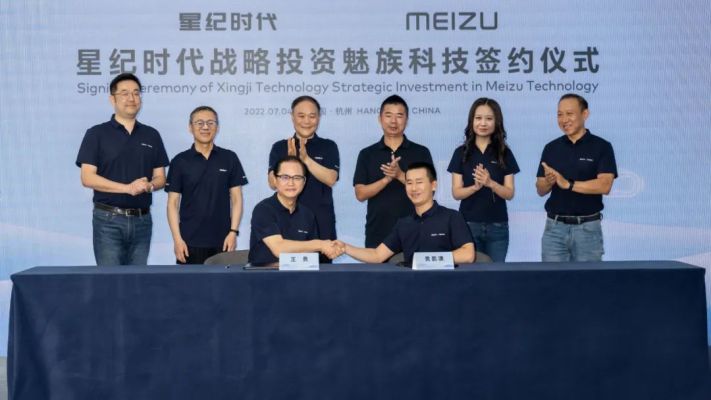Remember Meizu, the once-promising competitor to Xiaomi? The Alibaba-backed Chinese smartphone maker is making a comeback — in a way — as it gets acquired by the founder of Geely, China’s largest private automaker and Volvo’s parent company.
China’s smartphone industry is notoriously competitive. Founded in 2003, Meizu has been making affordable, trendy Android-based smartphones that allowed it to gain brief moments of prominence at home and abroad. As of late, the phonemaker’s market share in China has been marginal — 1% in Q4 2019, according to market research firm Counterpoint.
But the firm is now taking another shot as Xingji Technology, a smartphone company launched by Geely’s founder and chairman Eric Li last September, acquired a controlling stake of 79.09%.
Meizu will continue to operae as an “independent brand” following the strategic investment. Its founder Huang Zhang, also known as Jack Wong, will be involved as the brand’s “product strategy advisor.”
The tie-up joins a raft of phone and auto makers working closer together and betting on a future where in-car control and handset operating systems are more integrated. Last March, Xiaomi created a subsidiary to make electric vehicles and pledged to spend $10 billion on the new business in the upcoming years.
In the highly homogenous consumer device market, Meizu and Xingji aim to build “a multi-device, scenario-agnostic, and immersive” digital experience. Xingji was founded with a focus on premium smartphones, mixed reality and wearables.
It’s hard to be too excited about another new phone brand at a time global economy is slowing down. Smartphone shipment worldwide is expected to slump 3.5% this year, according to market researcher IDC. And there’s ample competition. The upcoming Nothing phone, spearheaded by OnePlus’s co-founder Carl Pei, vows to be different, with refreshing designs and affordability, but its success will hinge on actual execution.
Xingji plans to release its first phone model by 2023 and sell 3 million units in the first year, Reuters reported earlier. Taking on premium-phone leaders Apple and Huawei, as well as aspiring players like Oppo, will be no small feat.
